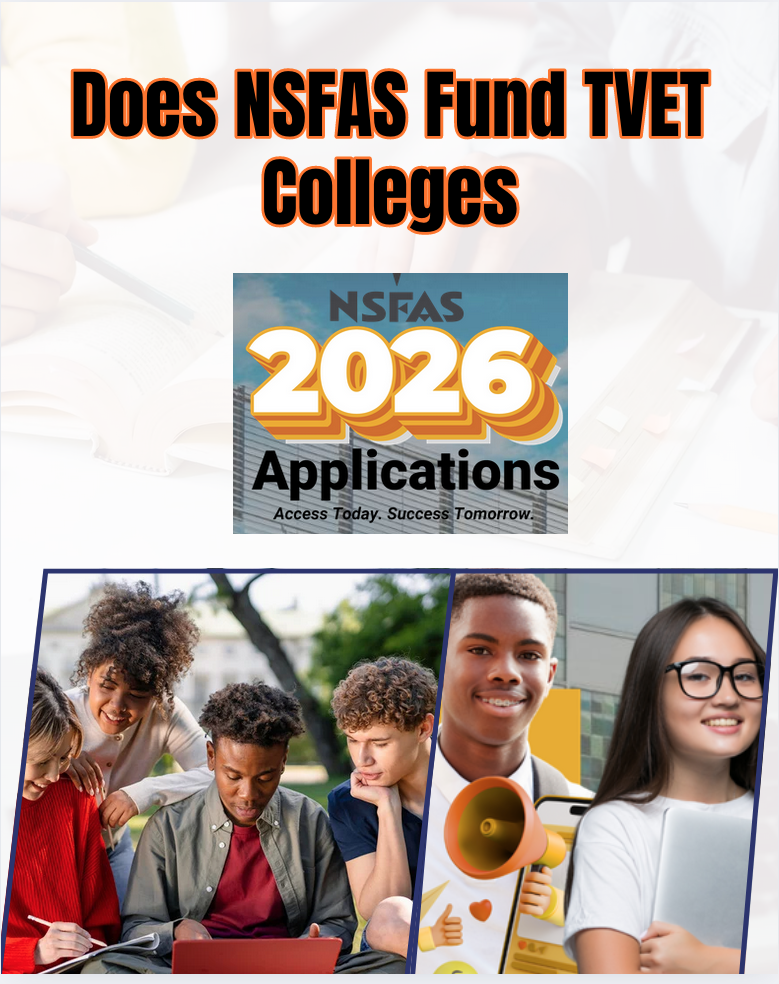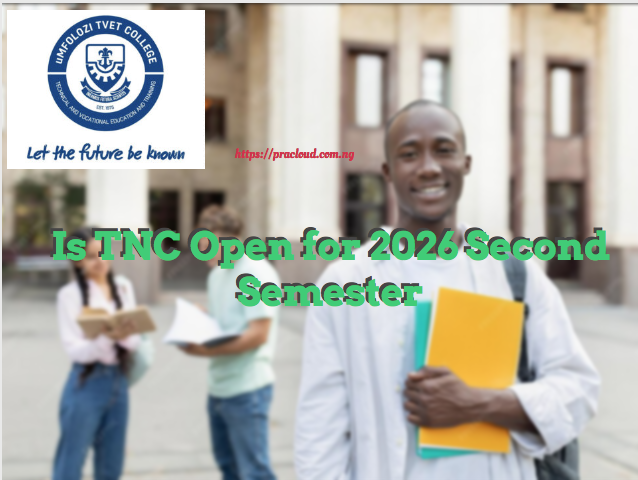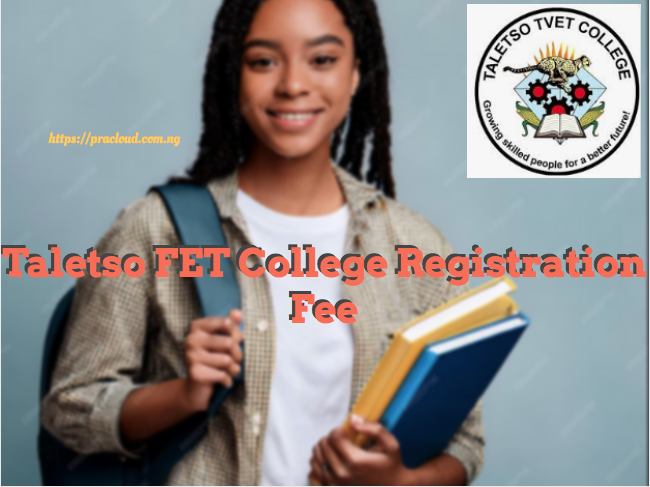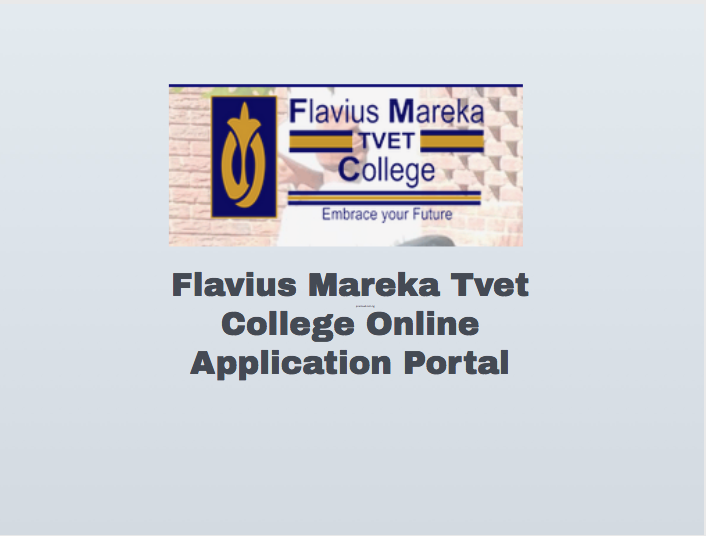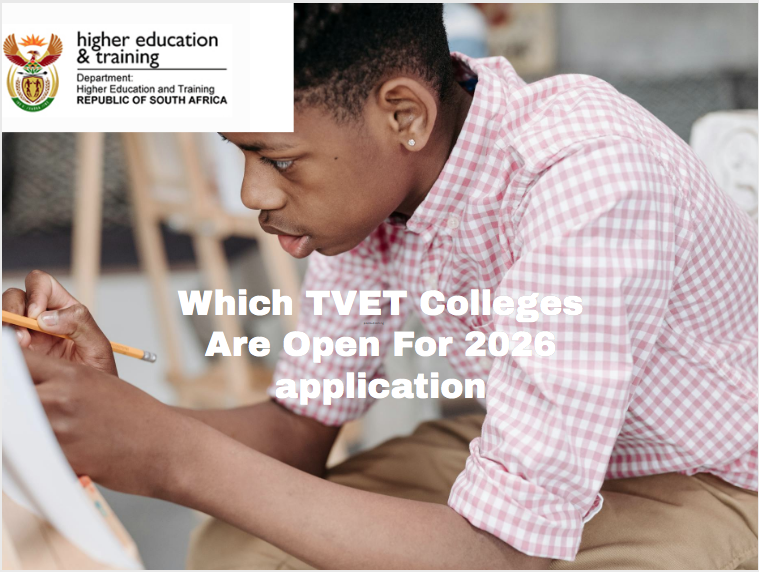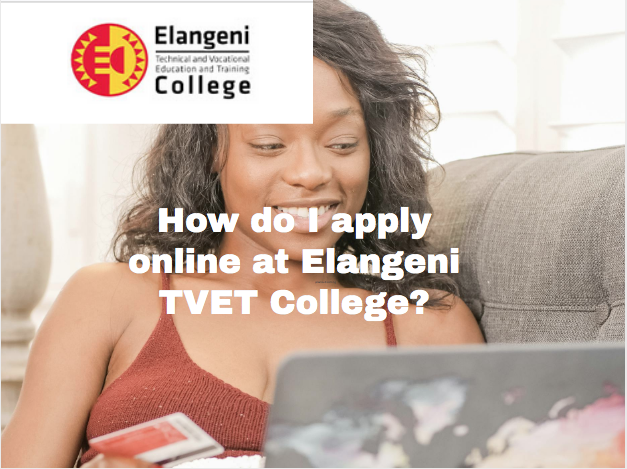Does Nsfas Fund TVET Colleges
Does NSFAS Fund TVET Colleges
Does NSFAS Fund TVET Colleges
Does NSFAS Pay for TVET Courses? Key Details and Requirements:
Yes, NSFAS (National Student Financial Aid Scheme) does fund TVET colleges in South Africa, making it possible for thousands of students to access quality, skills-based education without the heavy financial burden. For the 2026–2027 academic year, the NSFAS application deadline is 15 November 2025, so students looking forward to studying at a public TVET college should apply well before this date to secure funding.
TVET (Technical and Vocational Education and Training) colleges are designed to equip students with practical vocational and occupational skills that lead directly to employment or entrepreneurial opportunities. South Africa urgently needs skilled workers in fields such as engineering, construction, manufacturing, agriculture, and technology. By funding TVET studies, NSFAS helps close this skills gap and supports the country’s economic growth.
NSFAS covers a wide range of Ministerial-approved programmes, including Engineering Studies (National Certificate Vocational NQF Levels 2–4 and Report 191 N1–N6), Electrical Infrastructure, Civil Engineering Construction, Information Technology & Computer Science, and Business & Utility Studies such as Marketing, Finance, Office Administration, Hospitality, Tourism, and Transport & Logistics. NSFAS also funds the Pre-Learning Programme (PLP), giving students a strong foundation for their studies.
One of the biggest advantages of studying at a public TVET college is affordability. Programmes are subsidised up to 80% by the Department of Higher Education and Training, and NSFAS bursaries often cover the remaining 20%. To qualify, applicants must be South African citizens, demonstrate financial need, and have a combined family income of R350,000 or less per year.
Nsfas Application Deadline For 2026-2027
- Nsfas is currently open for TVET College applicants who wish to secure funding for their studies for the study year 2026-2027. Nsfas will close its applications for 2026 on the 15th of November 2025. It is therefore required that applications be submitted as early as possible to avoid disappointments and delays.
- All South African citizens
- All SASSA grant recipients qualify for funding
- Applicants whose combined household income is not more than R350 000 per annum
- A person with a disability: Combined household income must not be more than R600 000 per annum
- Students who started studying before 2018 and whose household income is not more than R122 000 per annum.
Tvet College Courses Funded By Nsfas For 2026/2027
NSFAS funds Ministerial-approved programmes. Students should confirm details with their chosen college, but commonly funded programmes include:
Engineering Studies:
- National Certificate (Vocational) NQF Levels 2–4 and Report 191 N1–N6.
Specialisations:
- Engineering & Related Design, Electrical Infrastructure, Civil Engineering Construction, Information Technology & Computer Science.
Business & Utility Studies:
- National Certificate (Vocational) NQF Levels 2–4 and Report 191 N1–N6, including Management, Marketing, Finance, Office Administration, Economics & Accounting, Education & Development, Hospitality, Tourism, Safety in Society, and Transport & Logistics.
Pre-Learning Programme (PLP): Also funded by NSFAS.
- Public TVET colleges offer a wide range of programmes, from short courses lasting a few hours to formal three-year diplomas. Course fees vary, but Department of Higher Education and Training programmes are subsidised up to 80%, and many full bursaries cover the remaining 20%.
TVET College Qualification Criteria Funded By NSFAS
- Must be a South African citizen.
- Must be registered or plan to register for a PLP, NC(V), or Report 191 programme at any of the 50 public TVET colleges.
- Must require financial assistance (NSFAS will assess eligibility).
- Returning students must meet the college’s academic progression standards.
- Cannot enroll in a qualification that duplicates previous state-funded learning.
- Family income must not exceed R350,000 per year, with proof of admission or a firm offer from a college.
What Does The Bursary Cover For TVET Colleges
The Nsfas bursary covers the following for TVET college students:
- Accommodation in an urban area is R24,000 per annum
- Accommodation in a peri-urban area is R18,900 per annum
- Accommodation in a rural area is R15,750 per annum
- Transport (up to 40 km from the institution) R7,350 per annum
- Transport R7000 per annum
- Incidental/personal care allowance R2900 per annum
- Provide your own cellphone number and email address
- You must have a copy of your ID or birth certificate
- National ID copies of parents, guardians, or spouse
- The evidence of your income or 1 year’s IRP5, if necessary
- The proof of income of your parents, guardian, or spouse.
- If you are a SASSA grant recipient, you don’t need to provide any evidence of income.
- All Applicants with a disability should provide and submit a completed and signed Disability Annexure A Form
- An applicant known as a Vulnerable Child by the Department of Social Development should also provide a completed and signed Vulnerable Child Declaration and Consent Form.
How to Apply for the NSFAS Bursary Online Application
If you would like to apply for NSFAS online, follow the steps below:
- Visit the NSFAS website: www.nsfas.org.za online
- Then, you have to click on the “myNSFAS” tab
- After that, you create your myNSFAS account
- After creating myNSFAS account, you then have to click on the “Apply” tab
- Answer the following questions that you see on your screen
- Update all your personal information
- Upload all the required supporting documents
- Lastly, click on “Submit” to send your application for review.
Contact Details
For general, student, and NSFAS Wallet inquiries
- For all other queries regarding students:
- Tel No.: 08000 67327
- Email: info@nsfas.org.za
NSFAS funding makes studying at a public TVET college in South Africa both affordable and accessible. By covering tuition, learning materials, and some living expenses, NSFAS enables students to focus on developing practical skills in high-demand fields such as engineering, business, IT, and hospitality. With the 2026–2027 application deadline set for 15 November 2025, it is essential to apply early and ensure you meet the requirements, including South African citizenship and a household income of less than R350,000 per year. Visit the Official Website of NSFAS for More.
RELATED LINKS:
